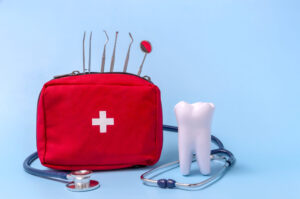A toothache can be a real pain, literally. It’s one of those discomforts that can make your whole day miserable. But have you ever wondered what causes a toothache? There’s more to it than just a simple cavity or a piece of food stuck between your teeth. Let’s dive into the different reasons why your tooth might be hurting.
Tooth Decay: The Usual Suspect
Tooth Decay, or cavities, is often the main culprit behind toothaches. When you don’t brush and floss regularly, bacteria in your mouth feast on the leftover food particles and produce acids that eat away at your tooth enamel. This process leads to the formation of cavities, which can cause sensitivity and pain in your teeth.
Gum Disease: A Silent Troublemaker
Sometimes, the problem might not be with your teeth but with your gums. Gum disease occurs when plaque (a sticky film of bacteria) builds up along the gum line and causes inflammation. If left untreated, gum disease can progress and lead to tooth loss. The early stages of gum disease, called gingivitis, can cause gum sensitivity and discomfort, which may contribute to a toothache.
Dental Abscess: The Hidden Danger
A dental abscess is a pocket of pus that forms due to a bacterial infection. It can occur either at the tip of the tooth’s root or in the gums next to the tooth. An abscess can cause severe throbbing pain, swelling, and even fever. It’s essential to seek immediate dental care if you suspect you have a dental abscess, as the infection can spread to other parts of your body if left untreated.
Other Possible Causes
Apart from tooth decay, gum disease, and dental abscesses, there are other reasons why you might be experiencing a toothache:
Tooth Sensitivity:
Sometimes, your teeth might become sensitive to hot, cold, or sweet foods and beverages. This sensitivity can be caused by worn enamel, exposed tooth roots, or gum recession.
Tooth Fracture:
A cracked or fractured tooth can result from biting down on something hard, an injury to the mouth, or even from grinding your teeth at night. Depending on the severity of the fracture, you may experience intermittent or constant pain.
Impacted Wisdom Teeth:
When there isn’t enough space in your mouth for your wisdom teeth to emerge properly, they can become impacted, causing pain, swelling, and infection in the surrounding gums.
What to Do When You Have a Toothache
If you’re experiencing a toothache, don’t ignore it. Here are some steps you can take to alleviate the pain and prevent further complications:
- Rinse with warm saltwater: This can help reduce inflammation and kill bacteria.
- Use over-the-counter pain relievers: Ibuprofen or acetaminophen can help ease the discomfort until you can see a dentist.
- Avoid hard, crunchy, or sticky foods: Stick to soft foods that won’t aggravate the pain.
- Apply a cold compress: Placing a cold compress on the outside of your cheek can help numb the pain and reduce swelling.
- See your dentist: Schedule an appointment with your dentist as soon as possible to diagnose the underlying cause of your toothache and receive appropriate treatment.
Conclusion
A toothache can be a sign of various dental problems, ranging from cavities to gum disease to dental abscesses. Ignoring a toothache can lead to more significant issues down the road, so it’s essential to address it promptly. Remember to practice good oral hygiene, including brushing twice a day, flossing daily, and scheduling regular dental check-ups to keep your teeth and gums healthy and pain-free.
 Now
Now








